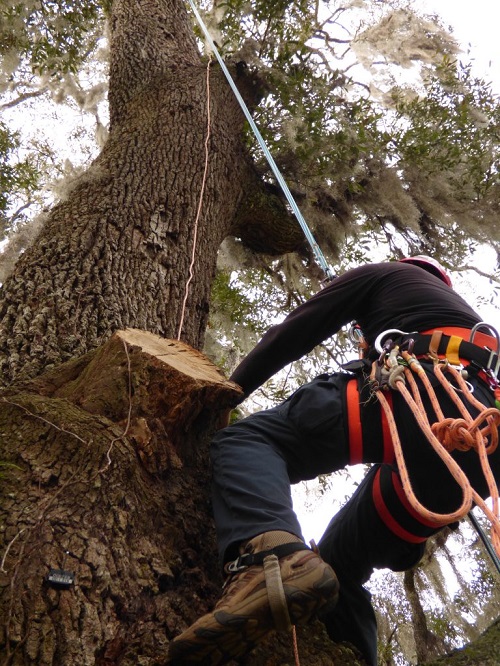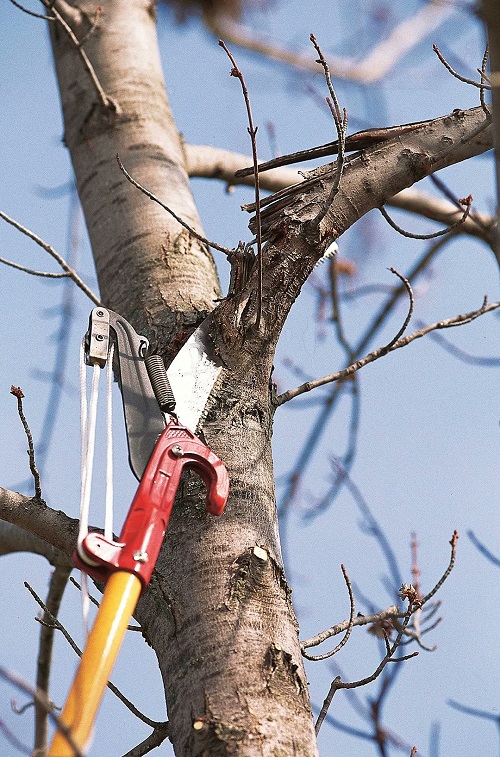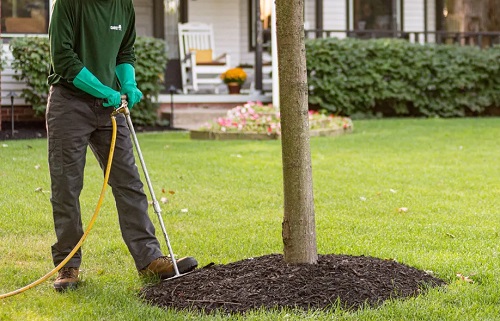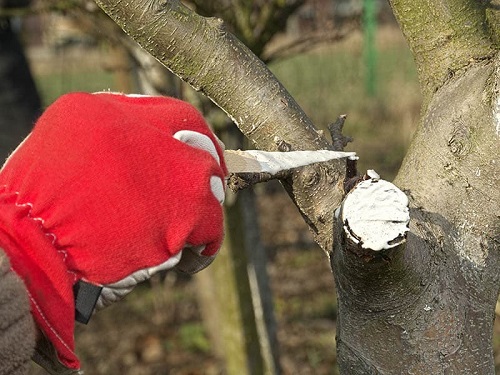Learn the best tips and techniques to repair a Tree Struck by Lightning and restore it to its former glory.

A lightning strike can be a devastating blow to any tree, causing irreversible damage to its structure and health. However, you can still bring your beloved tree back to life and restore it to its former glory by following these Best Tips to Repair a Tree Struck by Lightning!
Here are the Best Tips for Gardening in Extreme Heat
What can a Lightning Strike do to a Tree?
A lightning strike can cause severe damage to a tree, both internally and externally. When lightning hits a tree, it can travel down the trunk, causing a deep crack or even splitting the tree in half. This can expose the tree’s interior to the elements, making it more susceptible to disease and decay.
The intense heat generated by a lightning strike can vaporize the moisture in the tree. This can lead to the explosive boiling of sap, which can cause further damage.
However, the damage is not limited to the tree trunk. Lightning can also cause root damage, which can affect the tree’s ability to absorb water and nutrients from the soil. This, in turn, can weaken the tree’s overall structure and make it more prone to falling or breaking by high winds or storms.
Apart from the physical aspects, lightning can also affect the tree’s health and growth over time. The electrical discharge from a lightning strike can alter the soil’s composition, making it less hospitable to microorganisms and beneficial fungi that are crucial for a tree’s growth. It can also disrupt the tree’s natural processes and cause leaves to wilt, branches to die, or the entire tree to decline gradually.
Learn How To Water Plants + 5 Watering Mistakes You’re Doing here
Best Tips to Repair a Tree Struck by Lightning
1. Prioritize Safety

First and foremost, assess the area around the lightning-struck tree for any potential hazards, such as loose or unstable branches, damaged electrical wires, or debris. If the tree is leaning or unstable, it may be best to seek professional help.
Ensure that you wear the appropriate safety gear, such as gloves and eye protection, when working with the tree.
Learn How to Get Rid of Potato Bugs here
2. Trim Away Dead Branches

Using clean and sharp pruning tools, remove any dead or damaged branches from the tree to help prevent further damage and promote new growth. Cut the branches cleanly, making sure not to leave any stubs or tears, which can invite pests and disease.
Make sure to wear the appropriate safety gear when working with a Tree Struck by Lightning. Safety should always come first!
Learn How to Dispose of Diseased Plants and Weeds here
3. Apply Wound Dressing
After pruning, cover the exposed wounds and cracks with a wound dressing, such as a pruning sealer, to protect the tree from pests and diseases.
Just make sure to apply the dressing in a thin layer and avoid over-applying, which can trap moisture and cause further damage.
4. Water and Fertilize

Water the tree deeply and regularly, especially during dry periods, to help it recover from the lightning strike. Provide the tree with slow-release fertilizer to promote new growth and restore its overall health.
Choose a fertilizer that is suitable for the tree species and follow the manufacturer’s instructions.
5. Monitor the Tree’s Progress
Keep a close eye on the tree over the next few weeks and months to observe its progress. Look for signs of new growth, such as leaves or buds, and continue to care for the tree as needed.
Ensure that you avoid overwatering, as this can lead to root rot and other issues.
Here are Signs of Overwatering & How to Save an Overwatered Plant
6. Seek Professional Help
If the damage to the tree is severe or if you’re unsure of how to proceed, it’s always best to seek professional help from a certified arborist. They can assess the tree’s condition and provide the necessary care and treatment to help it recover.
Avoid attempting to repair the tree yourself if the damage is extensive, as this can be dangerous and potentially make the situation worse.


